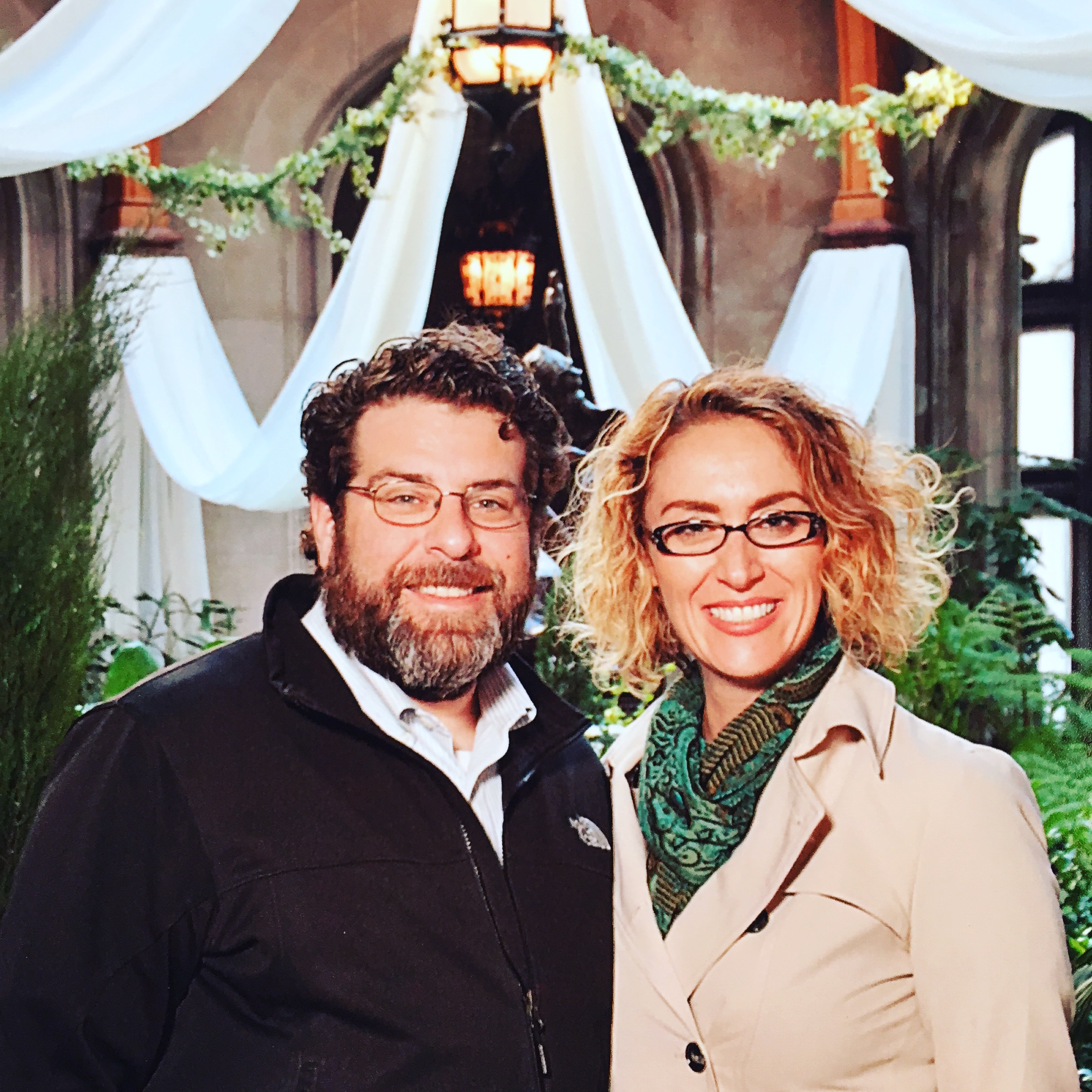Dualing Banjos
Well, I got such great feedback from everyone with the last post. So, if you haven’t had enough of dualism yet, there’s a whole lot more where that came from, and I think it’s my new found calling in life to bring it to the masses ad nauseum. 🙂 I read this article by Nancy Scott called “Dueling with Dualism” not too long ago, and it really struck a chord with me. I encourage you to read the whole thing, but I will share with you my favorite passage:
To separate our experience into spiritual and material, leads us to place value on the pursuit of “spiritual” things over the pursuit of “earthly” things. For the Christian college student, her pursuit of literature and the arts becomes “fleshly,” which is “less than” a spiritual pursuit. Since God is not in “the flesh,” the most valued vocations for her as a Christian are those involving spiritual things. For the Christian mother, tending to the needs of her children becomes “fleshly,” and perhaps frustrating to her, when she would rather pursue loftier, “spiritual” things. She may consider ministry, Bible study, and church activity the “better” things to do; when in reality, loving her children the best she can is the higher task.
If instead we carry with us an integrated view of the spiritual and the material worlds, we are free to pursue the plethora of options God has laid before us. If the highest human experience is moral beauty, then it matters less what I do (non-moral) and more how I do it (moral). I can pursue expressing myself in the arts, literature, or science as a joyous expression of the creature God created me to be. The college student can firmly embrace her studies on the campus, while thinking critically about the ideas presented. She can choose the vocation for which God has given her a desire, and see His hand in whatever she chooses to do, without the fear that anything can turn her heart away from the posture she has before God. God is the one holding her heart, and He is faithful. (emphasis mine)
Oh man. Isn’t that beautiful???
I also really dug what she had to say about reading the Bible, keeping in mind the cultural context in which it was written and the audience for whom it was written. This is one of the reasons that I love the Emerging Church‘s teachings. I know that may deem me a heretic in some circles, but…oh well! They acknowledge this. They point out to us how easy (and lazy, might I add) it is to read the Bible with our own cultural frame of reference into the Bible, and completely miss out on what the true inspiration of the text really meant for its intended audience to hear. In other words, missing the heart of what the author is saying and rather focusing on the literal law of the letter of the word. I’ve seen too many people do this and use the Bible to justify abuse. This is why we don’t take verses like those that admonish slaves to obey their masters, women to keep silent in church and not cut their hair short, literally. We look at the broader message of grace, love, and respecting the culture around us even if we don’t necessarily agree with it, which unfortunately we haven’t always done a great job of doing. Maybe, just maybe, it isn’t too late to start.



8 Comments
Erin
In so many Beth Moore studies I’ve done, she has really taught what was being taught/said to the original audience (the Israelites mostly) and instead of taking away from me, I was so enriched by learning what was for these people. By learning the cultural context we get so much more. She wasn’t throwing out any rhema word moments, but just also teaching the logos. Of course I’ve got more to say, but I gotta run:)
Chris Lane
I disagree with Nancy Scott’s take on Greek thinking’s impact on Christianity, but I do very strongly and emphatically agree that we must not see faith standing in opposition to reason.
The common error, in my opinion, is not in splitting flesh and spirit, but in ranking them. Truth sometimes seems to contradict truth, revealing some deeper truth (like the incarnation). The danger in putting spirit above flesh is a blindness to the ‘deeper’ truths. (dare I bring up John 6?)
Postmodern thinking and culture standing against Christ is not splitting flesh and spirit. It is denying that anything meaningful can be understood as spirit. Our “postures toward God” are now mere superstition.
Considering Saint Bonaventure’s words from the 13th century:
“reading without repentance, knowledge without devotion, research without the impulse of wonder, prudence without the ability to surrender to joy, action divorced from religion, learning sundered from love, intelligence without humility, study unsustained by divine grace, thought without the wisdom inspired by God”.
We can see inadequacy that many of our time would call progress.
Angela
Chris, excellent thoughts! I visit the blog of an agnostic quite frequently, who was once an evangelical Christian for decades. His experiences with the church have left him very wounded, bitter, and angry with Christianity as a whole. Many commenters on the blog are also either agnostics or atheists, and while I find myself agreeing with them on many things, you’ve brought up a very important point that they all seem to want to avoid. That is, Can NOTHING good EVER come from faith??? Is reason ALWAYS better than faith. No, it isn’t. I think that reason and faith are of equal importance (IMHO), and yet serve two very different purposes. Like you said, that is what seems to be missing in the post modern era. Reason is a god. But that is where I think the American evangelical church has fallen short. We’ve elevated faith and spirit over everything else, so that many times we’re completely irrational and (to the outside world) way out of touch with reality. And I don’t think that’s what Jesus ever had in mind. True, He said you are in the world but not OF it, but that was a reminder to us to always stay focused on our true identity. Not a license to act like fruit loops! He, being born of the Spirit, led a very earthy, grounded, practical life. I like what you said about “denying that anything meaningful can be understood as spirit,” and the danger of seeing “faith standing in opposition to reason.” Excellent points. I very much agree. Many of the commenters that I referenced have experienced some sort of abuse, at the hands of Christians whom they’ve trusted, who were relying on “the Spirit.” Speaking for myself, I’ve been in many Christian environments that relied too heavily on emotionally manipulating people to get them to behave a certain way, and it’s made me very wary. I guess the problem for us lies in restoring some of that balance, proving that faith and reason can coexist, and that we’re not just caught up in a bunch of emotionalism.
Angela
I loved that quote, BTW. Thanks!
Erin
Ange,
I love what you just wrote! And you too, Chris. Cheering me up, despite dealing with a stomach bug. I like especially, Ange, what you said about people using the “spirit” (not so Holy here) to really manipulate and control. The whole point is, He is in control. And the Spirit gives us a “sound mind.” Sorry for rambling and adding nothing:)
hollyet
i have been in a bible study for a couple of years taught by a Jewish believer in Jesus as the Messiah—she speaks, reads and writes in hebrew, and i tell you i have learned so many neat things that really bring relevance to scriptures and the context in which they were written. she is about as free from the OT law thing as you can get, but is able to show how it is incorporated into the Nt, how Jesus is seen thruout the whole bible..really getting the message of grace in the midst..
i am thinking particularly of the scripture in Romans 7 that my whole life i have not understood but took as a mandate from heaven: For a married woman is bound by law to her husband while he lives, but if her husband dies she is released from the law of marriage. Accordingly, she will be called an adulteress if she lives with another man while her husband is alive. But if her husband dies, she is free from that law, and if she marries another man she is not an adulteress.
—Romans 7:2-3
here Paul is using a law from the OT and from the way the Hebrews had been taught to highlight that Jesus, as the groom of the Church, died, and we are released from marriage to the law as it were…as the whole book of Romans is to show us that we are not condemned anymore In Christ! wow, it was way deep for me..there’s more to it, i am just summing up a bit of what i took away from it, but your post made me think of it, and the fact that digging deeper into the meanings/contextual clues of the holy writ is a wonderful, necessary i think!, exercise, thanks ang!
Shannon
a ha! and this, Ange, is why I was a religion major in college. I loved to study all religions and the comparative classes were my favorite. I really loved a Parable class I took taught by a Jewish scholar in which we used a textbook that compared the different versions of the new testament side by side and understood Matthew, Mark, Luke and John’s frame of references better that way. We also began to uncover the “Q Source”, or the things that Jesus himself was documented by all four to have actually said and did and not their own opinions of what he meant when he said and did those things. This, and studying in language classes and anthropology classes, made me begin to realize that interpretation of God is a very complicated matter.
One thing never changed within me, though, and that was the love I always feel from God, nor the love for God I was taught to express by my parents and my Catholic church community as well as other religious communities I’ve been welcomed in, including evangelical, non-denominational, Jewish, Hindu, Buddhist and Islamic.
One thing I learned in one of my comparative religion classes from Buddhist teaching that I find so refreshing is that God is in the shit and the piss, too.
Angela
Shan, I once had the “revelation” during a Christmas Eve service, thinking of how Christ came to be born in this world, and what a humble God He really is. As women who’ve had a bunch of kids, you and I know what a messy experience the birthing process is! So you can take your analogy even further and say that God is, quite literally, in all the wonderful, glorious, messy bodily functions!!! 🙂